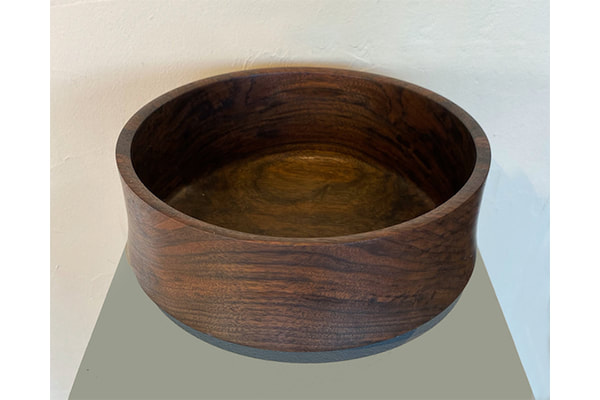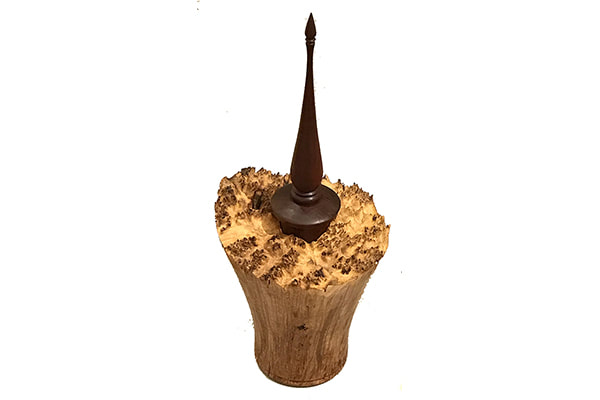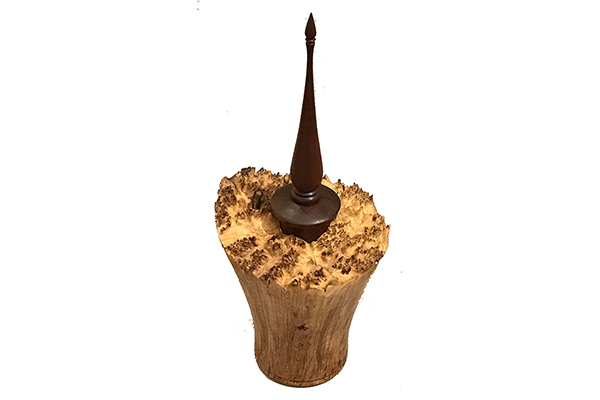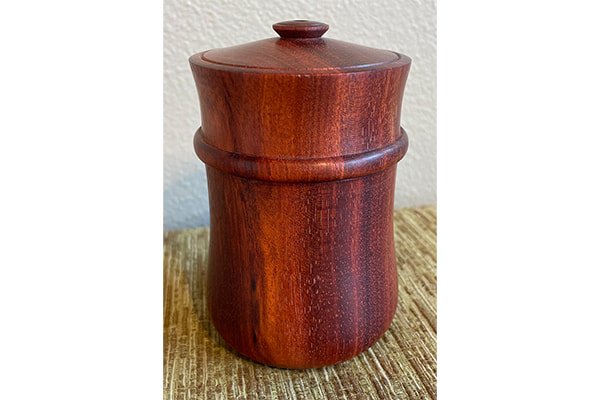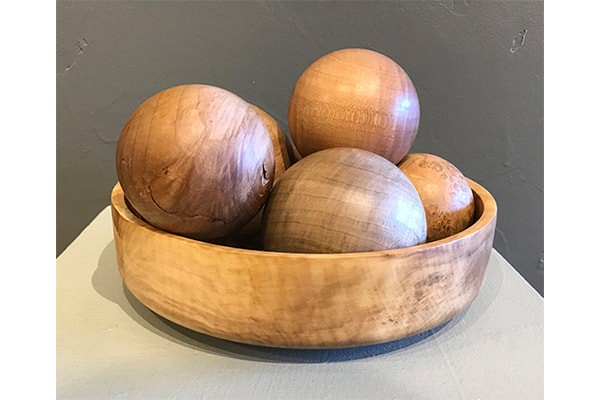Tom Willing
Oregon artist Tom Willing has turned wood for over 50 years. He focuses on turnery that is sensitive to the interplay between form and material. Collectible pieces, such as lidded finial boxes and natural-edge vessels, turned from both native and exotic species of woods, comprise the significant part of Willing’s work. He also produces pieces with both artistic and functional purpose, such as bowls, pepper grinders, wine bottle stoppers, and platters.
He uses a variety of species of wood, including maple, holly, dogwood, hornbeam, plum, pear, and cherry. He particularly enjoys working with local arborists to rescue timber that has a story from the chipper, such as a pioneer black walnut that was planted in the Willamette Valley before Oregon Statehood, or ornamentals that have fallen to storms, developers, or old age. One of his favorite pieces came from an extremely hazardous maple tree that harbored a wood duck burrow.
Following a few simple steps will help preserve your turned art piece through many years of viewing and use. Bowls, vessels, chalices, lidded boxes, and platters should be washed gently after use with warm, not hot, soapy water, then rinsed and dried thoroughly. An occasional light film of a fine cooking oil – walnut or olive oil is fine – will bring back the sheen of the finish. Never place any of your fine turnery in a dishwasher or leave it wet with, or submerged in water.
Bottle stoppers are finished with a high-build lacquer that only needs wiping with a dry cloth to being back its shine. The metal part of the stopper is stainless steel and may be washed with warm soapy water and rinsed. Never place any of your fine turnery in a dishwasher or leave it wet with, or submerged, in water.

